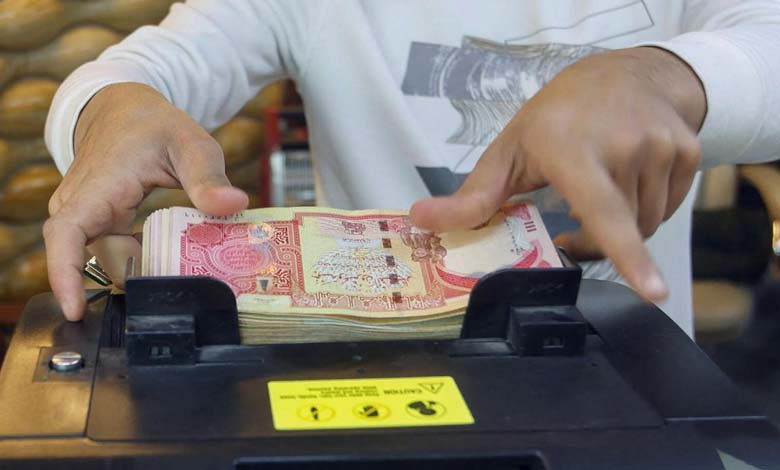Iraqi Move to Release Frozen Iranian Funds in Baghdad
Iraqi Foreign Minister discusses with American official focusing on challenges related to the use of the dollar in financial transactions

Iraqi Foreign Minister Fuad Hussein emphasized, Friday, the necessity of finding a quick and fair solution to the issue of frozen Iranian funds in Iraq that serves the interests of both parties and enhances financial stability in the region. This follows a meeting between Hussein and U.S. Undersecretary of State for Administrative and Political Affairs John Bass in the capital, Washington, where the two parties discussed several important bilateral and regional issues, according to the Iraqi News Agency (WAA).
The Iraqi Foreign Minister stressed the importance of enhancing U.S.-Iraqi relations in various fields, noting the shared desire to expand political and economic cooperation between the two countries while focusing on challenges related to the use of the dollar in financial transactions.
According to the same source, he emphasized the need to find solutions that enhance the stability of the Iraqi economy and contribute to sustainable growth.
In another context, he expressed concern about the situation in Gaza and the deteriorating conditions in the sector, as well as the extension of the conflict to southern Lebanon, emphasizing the importance of intensifying international efforts to stop escalation and achieve peace in the region.
Iran holds about $18 billion in Iraq, which is revenues from its gas exports to it. Under U.S. sanctions against Tehran, Iraqi authorities deposit these funds in exchange for their imports of gas from Iran and enable them to purchase humanitarian goods such as food and medicine.
The humanitarian goods that the Iranian government imports from Baghdad are very few, while its exports to Iraq have exceeded about ten times its imports of non-oil goods.
The United States had allowed Iraq to pay half a billion dollars from the total amount owed to Iran in March 2023, according to local media, citing the Secretary-General of the Iranian-Iraqi Chamber of Commerce, Hamid Hosseini.
The Iranian funds frozen in Baghdad are not the only ones, as Iran has huge undisclosed balances in countries with which it has commercial relations and its revenues from its oil exports over the past years since the signing of the nuclear agreement in 2015, but it cannot access them due to U.S. sanctions.
According to data from the Iranian Studies Center, the total Iranian assets in international banks were estimated between $100 billion and $120 billion in 2015, including $1.973 billion in the United States, $35 billion in Europe, and about $22 billion in China.
-
Iraqi kills his wife with a gunshot to the head
-
An Iraqi-Turkish agreement to resume re-exporting Kurdish oil through the Ceyhan Port
On June 10, 2023, the United States issued a decree allowing Tehran to use frozen financial resources in Iraq to purchase goods not subject to sanctions from third countries. The President of the Joint Iranian-Iraqi Chamber of Commerce, Yahya Al-Ishaq, revealed that the Iraqi government had released $2.7 billion of frozen Iranian funds, according to the Iranian news agency “Tasnim.”
In July 2023, the Iranian News Agency “IRNA” quoted Iraqi Prime Minister Mohammed Shia’ al-Sudani as saying that Baghdad was in contact with the United States regarding paying Iran’s debts in exchange for Iraq’s imports of gas, totaling €9.25 billion, adding that his country had paid “about €1.842 billion during the first seven months of the government in accordance with the agreed mechanism.”












